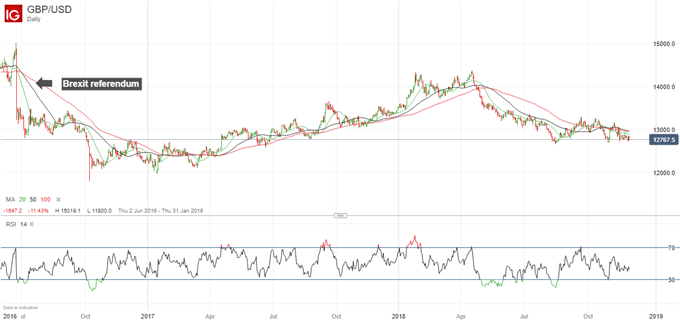A lot has happened in the UK economy after the EU referendum in 2016, and many attribute the changes to Brexit. While some are optimistic about the future of property in the UK, there are still concerns that Brexit has and will, cause more harm than good.
Brexit has already resulted in a weakening pound, and while this is seen as a positive thing by one group, it is not lauded as such by others.

In the property industry, the weakening pound has seen an influx in foreign investments in UK property, with American and Asian investors snapping up property at lower prices in the country. The property industry is still expected to slow down in case the UK gets a ‘no-deal Brexit’, with the Bank of England warning that house prices could fall as much as 35%, and this is in a worst-case scenario.
This fall would result in homeowners having negative equity, leaving them with houses that are valued cheaper than their mortgage. As such, the property market will experience the slow turn that the Bank of England has predicted, with investors halting their financial strategies and choosing instead to wait and see what would happen next.
It is hoped that the effects of Brexit on the UK property market will be less severe than predicted, but the industry is warned to prepare for the worst in any case. The biggest problem that the property industry may face is that of market failure due to the UK government’s distraction with the Brexit proceedings. Experts in the property market are of the opinion that the government needs to see housing as a priority, putting in a sizeable amount of investment into the sector so as to improve the infrastructure and give first-time investors a chance to get a foot in the market.
Already, the UK government is scrambling to replenish lost revenue as a result of the Brexit proceedings, and landlords are getting hit with hefty taxes while property slips lower on the list of government priorities. This raises another concern that the government’s ability to spend will be reduced by Brexit, whether there is a deal or not.
According to the Royal Institute of Chartered Surveyors (RICS), the uncertainties caused by Brexit will continue to affect the property market well into 2019. Already it is taking about 4 months to sell residential properties, the longest period it has taken to sell houses since 2016.
Cluttons, a firm of chartered surveyors and property consultants based in London, says that the residential property market in London will fall even more by 10% because of Brexit. Recent data from them shows that house prices in central London have fallen by 4.6% in the last 12 months, and the prices will continue to fall, but there will be recovery anytime from a year to two years.
The general consensus here is that the uncertainties about Brexit have negatively impacted the property sector in the UK. However, this is predicted to be a short-term effect, and the property market is expected to get back on its feet in a short period of time.
Read more about the Brexit’s positive impact on the property market here.



